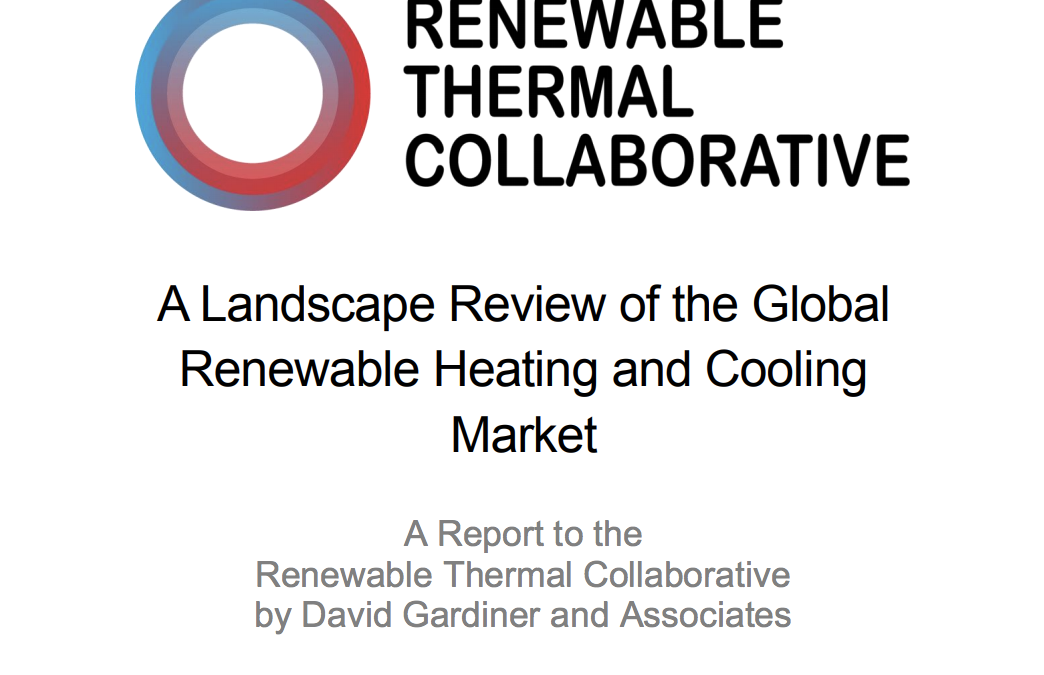Today, in a report to the Renewable Thermal Collaborative (RTC), David Gardiner and Associates (DGA) published a landscape review of existing literature that identifies the status of the existing and potential renewable thermal marketplace both globally and in the U.S. The report focuses on four renewable thermal fuel and technology types: bioenergy (including biogas, renewable natural gas, and biomass), solar thermal, geothermal, and renewable electrification.
This report aims to clarify for corporate and municipal decision makers, policymakers, and the public the significance of thermal energy as part of energy and carbon footprints especially in the industrial and buildings sectors, the range of renewable thermal energy applications and their potential for deployment within those sectors, and the market barriers renewable thermal technologies face.
The report finds that:
- Thermal energy is a large and growing part of the global energy and carbon footprint, especially in manufacturing and the building sector. Energy used for heating and cooling is 50 percent of final energy use globally and contributes 39 percent of greenhouse gas emissions from energy-related sources. Globally, industrial heat makes up two-thirds of industrial energy demand and almost one-fifth of total energy consumption.
- Renewable thermal technologies have substantial potential in industrial and building markets, especially for meeting low and medium temperatures. In industry, there is also significant need for renewable thermal technologies to meet high temperature needs such as steam. However, renewable thermal markets are growing at half the rate of renewable electricity markets.
- All renewable thermal technologies face supply, technology, market, and policy barriers, which a diverse group of stakeholders need to address to accelerate deployment.
Moving forward, the RTC Steering Committee will consider the information provided by this landscape review as one of several factors shaping the collaborative’s future priorities. Over time, DGA will further refine this work in consultation with business, government, and non-profit stakeholders.
Download the full report on the RTC website here.
